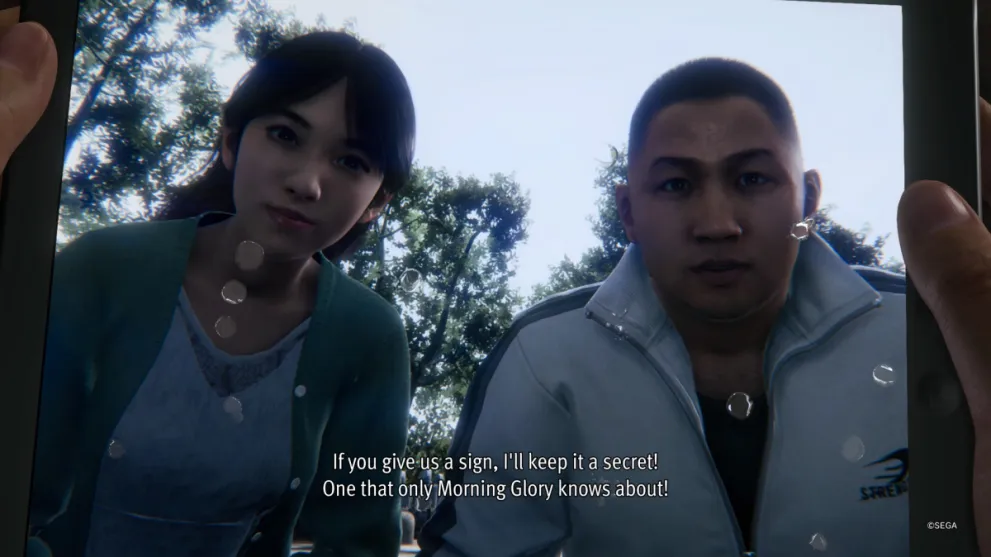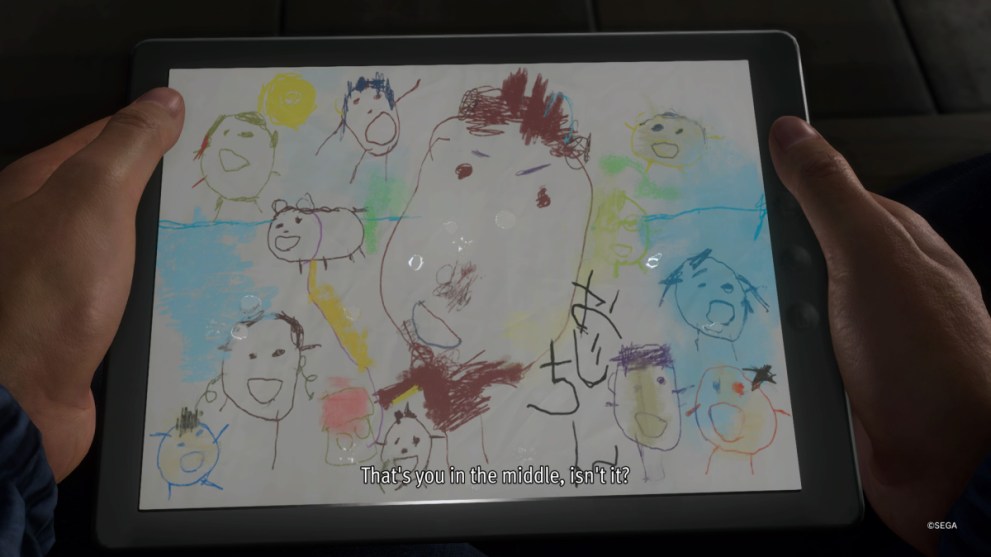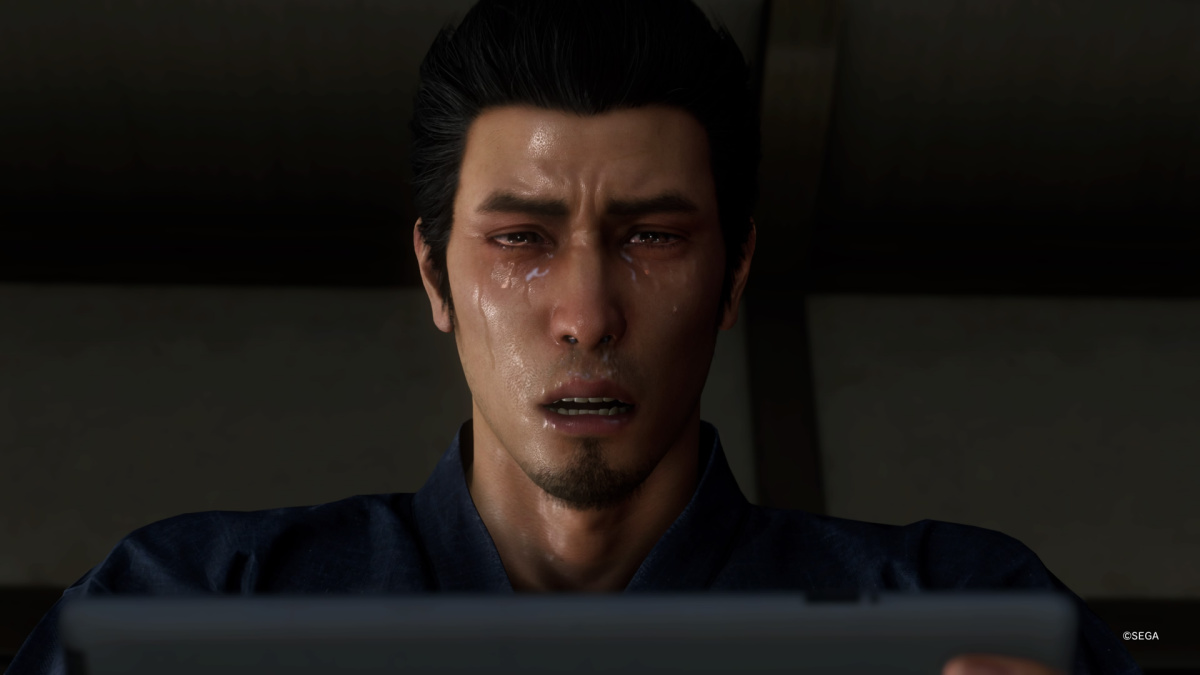Like a Dragon Gaiden: The Man Who Erased His Name is, to put it bluntly, not the best Yakuza or Like a Dragon game out there and certainly not the best adventure we’ve seen Kiryu star in.
While admittedly a budget entry in the series more in line with a large-scale expansion or DLC offering, it’s not without some notable gaps. Its gameplay can get repetitive fast if players try to dig into the side content, and its story is substantially smaller than in most modern entries. It’s even host to a handful of localization errors, which definitely says something given the series’ track record of meticulously translating or modifying jokes and word play from Japanese to English.
All of these flaws could have rightfully dragged Like a Dragon Gaiden down among the worst in the series. But they didn’t; or, more specifically, they weren’t able to thanks to one spectacular scene during the game’s ending which recontextualizes the series and lends some much-needed depth to its leading man Kiryu.

As the game wraps up, Kiryu is back at the Diadoji’s temple contemplating everything he went through. His handler Hanawa says he’s due to be rewarded for his hard work, but in his typical stoic strongman way, Kiryu brushes this off as unnecessary.
But then, Hanawa reveals Kiryu’s reward for all of his hard work throughout the game — for saving Hanawa, helping Serizawa disolve the Omi Alliance, and for encouraging Ichiban Kasuga, all in an effort to keep Morning Glory Orphanage safe — is a video recording via one of their surveillance cameras.
It shows Haruka, Haruto, and the rest of the kids from the Orphanage have been visiting his grave in Okinawa since his disappearance at the end of Yakuza 6, and that they’ve never forgotten him. Not only that, but Ayako and Taichi discovered the camera, and on the off chance Kiryu was watching them through it, they to let him know that they’re okay; that they’re trying to help people like he did in whatever ways they can, that they’re staying strong, and that they hope he comes back someday.
They promise they’ll be waiting for him, and ask that he give them a sign if he’s still alive. And to show how much they still love him, they leave him a gift the next time they visit his grave in the form of a picture drawn by Haruto. At its center is Kiryu, bigger and happier than he’s ever looked.
It’s a sufficiently gut-wrenching scene, and most Yakuza fans would know what to expect at this point. Kiryu would normally shed some manly tears, reaffirm his resolve to protect them, and set off on his next adventure.
But this isn’t one of those times. Instead of holding strong, Kiryu shatters.

The man who has faced down countless dangers, and who has buried enough friends, lovers, and sworn blood brothers to populate the whole of Yakuza: Dead Souls’ zombie hordes, weeps openly and with unbridled anguish at being reminded of what he can’t have. The pain of being separated from his found family, and from the one life he wanted to keep more than anything else, finally bursts up to the surface after being hinted at through the entire game’s story and shrugged off with manly vigor.
It’s raw, it’s painful, and it’s entirely lacking in the overblown dramatics the series drenches the majority of its emotional moments in. But it’s also beautiful for these exact reasons. After exemplifying fortitude and unwavering determination no matter what stood in front of him, the Dragon of Dojima genuinely drops his guard for what feels like the very first time, and the sheer humanity he displays elicits no less than emotional obliteration.
Hell, I’m not ashamed to admit that this scene managed to make me weep like no other game has in a long time. It humanized a character who I’d otherwise watched be an unflappable action hero for nearly a dozen games now, and to see him laid bare like that made what was playing out on the screen feel that much more visceral.
And to top it all off, it achieved what Yakuza 6 failed to do so many years ago: It made me hope that the series finally lets go of Kiryu as a protagonist. To see his continued involvement in the plot causing him that much emotional distress — whether it’s emotionally compelling or not — made his role as the series’ de facto hero seem less like a revered title held by a legend and more like a curse burdening him without end.
If I wasn’t a fan of Ichiban taking up the mantle before, there’s no doubt in my mind that I’m behind the series moving that way 100 percent now. And if the extended story trailer put out for Infinite Wealth is anything to go off of, Ryu Ga Gotoku Studio is of the same mindset.
Is it a little sad to think Kiryu might never be featured in another Like a Dragon game? Undeniably. The stern-faced, muscular fridge of a man is a core reason the series caught on the way he did, and he’s one of a select few characters gamers can say they literally grew up with thanks to how meticulously chronicled his life has been across the franchise’s games.
But Like a Dragon Gaiden has proven there’s a man behind the stoicism. And despite so many years of being a Dragon, a Tojo Clan Chairman, and the exemplar of living life as one sees fit, Kiryu is more than just Kiryu. He’s also Kazuma, a man who misses his family and deserves to lay his weary head to rest via a happy ending.













Updated: Nov 14, 2023 08:32 pm